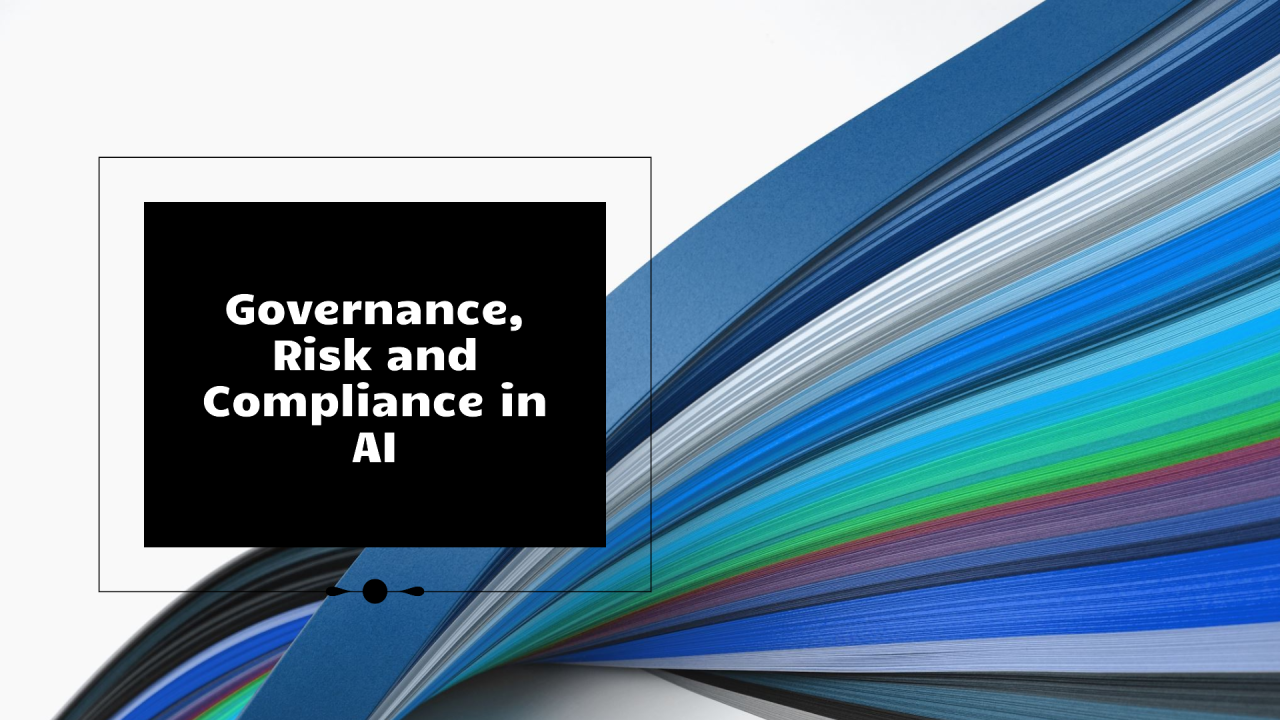
In today’s rapidly evolving technological landscape, GenAI and machine learning stand out as groundbreaking innovations with the potential to revolutionise industries and the way we live our lives and do our jobs. However, alongside its immense potential, GenAI brings significant ethical, governance, and compliance challenges. These challenges cannot be overlooked, as they form the basis of responsible AI deployment.
Ethics: The Foundation of AI Conversations
The conversation around AI inevitably leads to questions about ethics. Ethical considerations in AI encompass a broad spectrum, including data privacy, bias, transparency, and accountability. It’s crucial to ask: Is AI being used in accordance with established policies? Are we protecting the rights and privacy of individuals whose data fuels these systems? These questions highlight the necessity of embedding ethical principles into the development and deployment of AI technologies.
One of the primary ethical concerns is ensuring that AI systems do not perpetuate or amplify existing biases. Biased AI can lead to unfair and discriminatory outcomes, undermining trust in the technology. Therefore, it is imperative for organisations to implement rigorous ethical guidelines and continuously monitor AI systems to mitigate bias and promote fairness.
Governance: Establishing Robust Frameworks
Effective governance is essential to navigate the complexities of AI deployment. AI governance frameworks provide the structure needed to ensure that AI systems are developed and deployed responsibly. These frameworks should encompass clear policies and procedures that guide the ethical use of AI, as well as mechanisms for oversight and accountability.
A critical aspect of governance is ensuring that employees adhere to established policies while using AI. Organisations must provide comprehensive training to their employees, emphasising the importance of compliance and the potential risks of non-compliance. Employees should be well-informed about data laws and regulations to avoid unintended violations while exploring innovative ways to leverage AI in their roles.
Furthermore, governance frameworks should include protocols for auditing and monitoring AI systems. Regular audits help identify any deviations from ethical standards and allow for timely corrective actions. By establishing a robust governance structure, organisations can foster a culture of responsibility and accountability in AI usage.
Compliance: Navigating Regulatory Landscapes
The regulatory landscape for AI is rapidly evolving, with governments and regulatory bodies worldwide introducing new laws and guidelines to address the unique challenges posed by AI technologies. Compliance with these regulations is not just a legal obligation but also a crucial component of building trust with stakeholders.
Organisations must stay abreast of the latest developments in AI regulations and ensure that their AI practices align with legal requirements.
Compliance also involves implementing measures to ensure the security and integrity of AI systems. This includes safeguarding against data breaches, cyber-attacks, and other security threats that could compromise the integrity of AI systems and the data they process.
Risk Management: Preparing for the Unexpected
Despite the best efforts to ensure ethical use and regulatory compliance, there is always a risk that something could go wrong. Therefore, it is crucial to have robust risk management strategies in place to identify, assess, and mitigate potential risks associated with AI deployment.
Organisations should establish protocols for incident response and crisis management. This involves having a clear plan to identify issues promptly, contain the impact, and communicate transparently with stakeholders. By being prepared for potential challenges, organisations can minimise the blowback from any adverse events and demonstrate their commitment to responsible AI use.
Conclusion: A Collective Responsibility
The integration of GenAI into various sectors presents unprecedented opportunities, but it also demands a heightened focus on governance, risk, and compliance. By embedding ethical considerations, establishing robust governance frameworks, ensuring regulatory compliance, and preparing for potential risks, organisations can harness the power of AI responsibly and sustainably.
As we continue to explore the possibilities of GenAI, it is our collective responsibility to navigate the ethical landscape diligently. Only by doing so can we ensure that AI technologies contribute positively to society and foster a future where innovation and responsibility go hand in hand.

